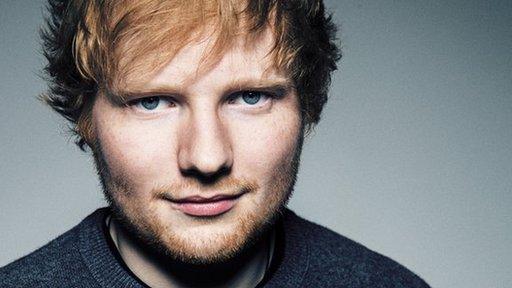BBC Music Awards: The verdict
- Published
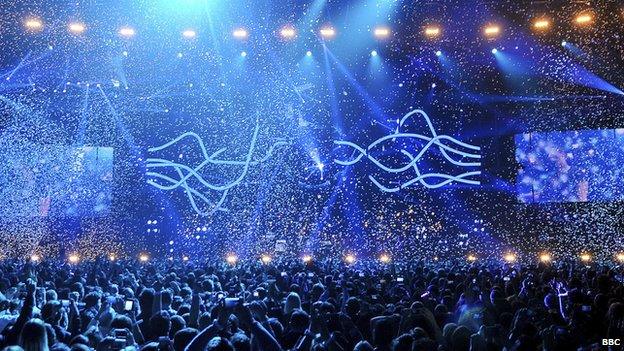
The show was supposed to bring a "quintessentially BBC" attitude to award ceremonies
When the BBC Music Awards were announced earlier this year, people had three questions: What are they for? Will they be a rival to the Brits? And does this mean we have to watch Coldplay again?
The answer to the last one was easy - Chris Martin christened the ceremony, performing the opening lines to Sky Full of Stars from the dressing room area, where assembled stars of the music world had been lined up and (apparently) instructed to ignore him.
The other questions were more thorny, even after the first show finished.
So we asked the performers and nominees what they thought the night was about.
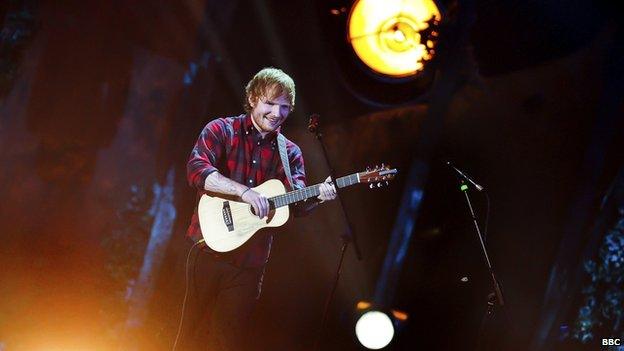
Ed Sheeran took home the best British artist prize
"Tonight's all about me," joked Labrinth. "I'm trying to promote myself and become more famous."
"No, obviously, the BBC are putting on their own award ceremony to challenge the Brits and the Mobos.
"There aren't as many awards - but I think people want to see their favourite artists do their thing, instead of going 'thank you for loving me.'"
He wasn't the only one to identify the lack of trophies on offer.
"The awards are almost a sideshow," said Grace Chatto, cellist with chart-topping dance act Clean Bandit. "There's a focus on the actual music as opposed to the pomp."
"It's not a whole drawn-out thing," added Calvin Harris, a survivor of the bum-numbing, 93-category Grammy awards. "It's more like a celebration."
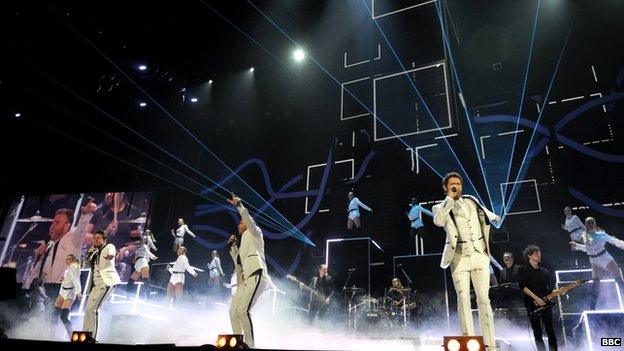
Take That were among the night's big-name acts
Ed Sheeran even argued that the paucity of prizes - there were four in all - meant the ceremony was more trustworthy.
"Most awards shows, you don't really know... whether it's rigged or not," he told the press before the ceremony.
"I won an award in the summer for a very big show, and I won it because Pharrell didn't turn up. They just said, 'he didn't turn up so you can have it.'"
Fittingly, when he eventually won the trophy for best British artist, Sheeran seemed genuinely surprised.
"I'm absolutely chuffed," he said. "But I think everyone knew but me - because my name's on it!"
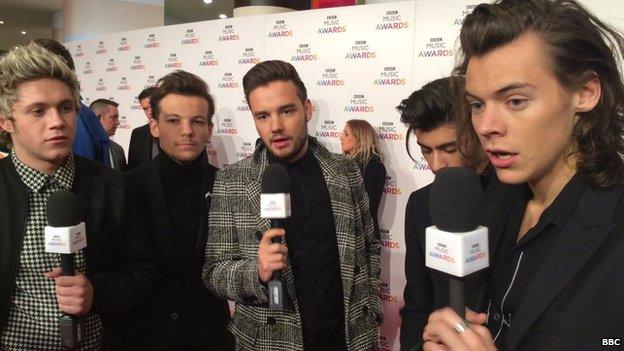
One Direction made a rare UK visit for the awards. They claim only to have spent 40 nights at home in 2014.
Sheeran's victory does raise a concern for the BBC Awards, though.
BBC Music boss Bob Shennan has stressed that "we don't want to do something that's just like the Brits" - but Sheeran is undoubtedly a front-runner for the music industry bash in February.
Radio 1 DJ Greg James dismissed the worries, saying the BBC ceremony was "not really just about the awards".
"The whole point of it is to celebrate a brilliant year of music and go 'Do you know what? We play a lot of music across the whole of the BBC.'
"You don't get this eclectic a line-up at any other awards ceremony."
Certainly, US jazz artist Gregory Porter would have been an unlikely booking at more commercial ceremonies.
And, while the Brits Critics' Choice award is analogous to the BBC Introducing prize, the difference in presentation is telling.
Past Critics' Choice winners, including Adele and Sam Smith, have been unceremoniously bundled off stage in 30 seconds, without the chance to showcase their music.
By contrast, BBC winner Catfish and the Bottlemen, were handed three minutes on primetime BBC One to play their single, Kathleen.
Frontman Van McCann said the band were overwhelmed to be "given a chance".
"[These things are] always full of pop artists, which is sound and that, but if guitar bands are getting on, that's nice because we've only got Jools Holland for that sort of music," he said.
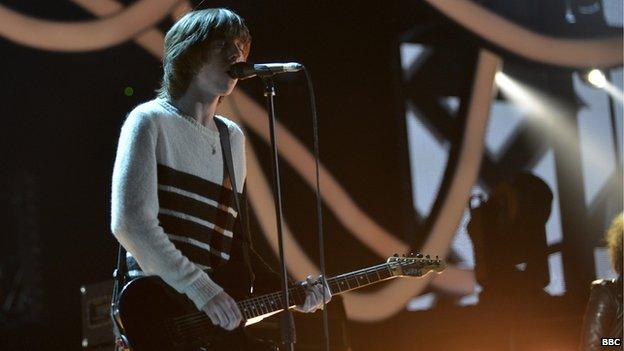
Catfish and the Bottlemen had never played a venue as large as Earl's Court before. "It's monstrous," said singer Van McCann
The BBC also made use of its Concert Orchestra to embellish some of the year's biggest hits - adding a plucked, Stand By Me bass to George Ezra's Budapest, for example - giving the night a real sense of occasion.
But the main message was how the BBC supports and promotes new music.
An endless stream of video interludes hammered home the message with the subtlety of a hand grenade, but some of the night's nominees made the point more eloquently.
"The BBC started playing me before anyone else did," said Ed Sheeran. "Mistajam played me in 2008 and 1Xtra named me one of their top picks for 2011. It was the first place to champion me.
"The best thing about the BBC being funded by the government is that they have to play all types of music. They have to play songs you wouldn't necessarily play on commercial stations.
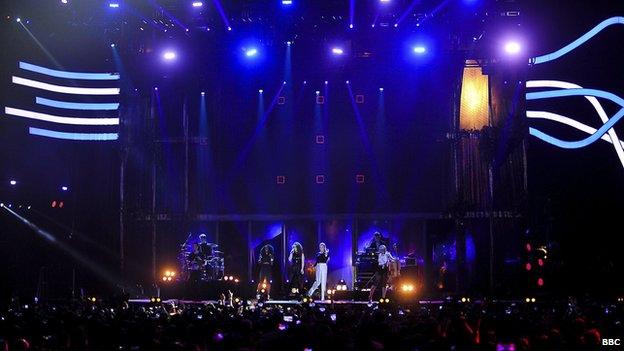
Clean Bandit were one of several acts to be accompanied by the BBC Concert Orchestra
"Radio 1 have been amazing for us," added Liam Payne of boyband behemoths One Direction. "They were the first people to launch us. Our first single was played exclusively there."
"There's nothing really like Radio 1 for breaking brand new songs," echoed Calvin Harris.
"That's the reason a lot of new, exciting music comes out of the UK. There's so many specialist shows on the biggest network. It's not like that in the rest of the world."
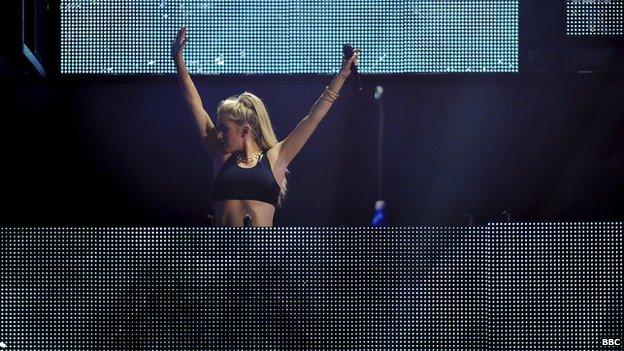
Ellie Goulding's big break came when she won the BBC Sound of 2010
So maybe that's what sets the BBC awards apart in their first incarnation: A sense of camaraderie around the celebration of music, as opposed to the sales-driven Brits, or the chin-stroking Mercury prize, or whatever it is the Q Awards are for.
And by all accounts, there was a lot less back-stabbing at Earl's Court than at the other, higher-stake ceremonies.
"Chris Martin's just wandering around, ecstatic," said Ed Sheeran. "He's wearing this big cashmere beany, smiling at everyone. Have you put something in the drink?
"It's been lovely so far," added Ellie Goulding. "Everyone's been having fun backstage.
"I had a nice little bean salad thing and a soup.
"I do like a soup."
- Published12 December 2014
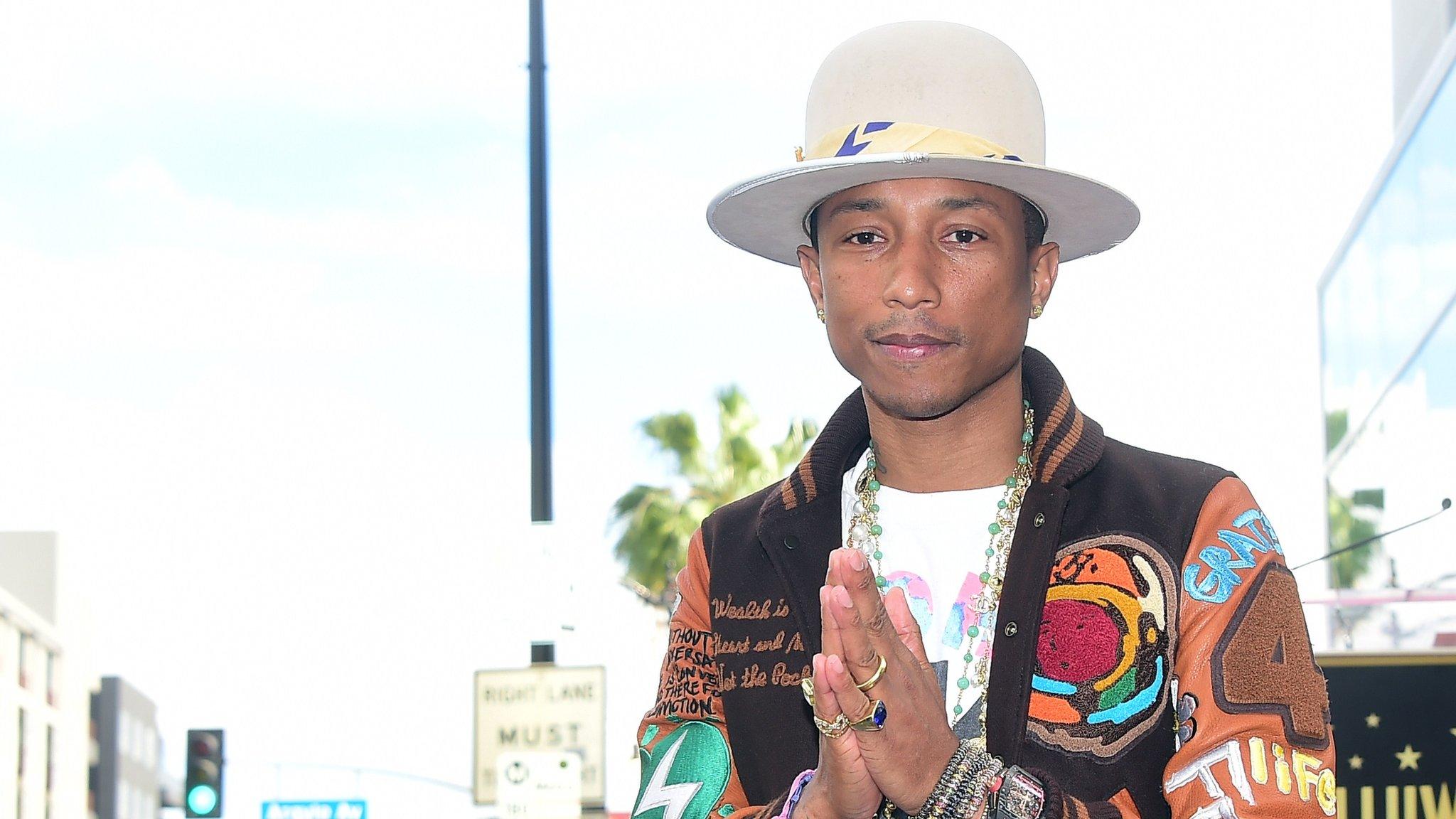
- Published11 December 2014
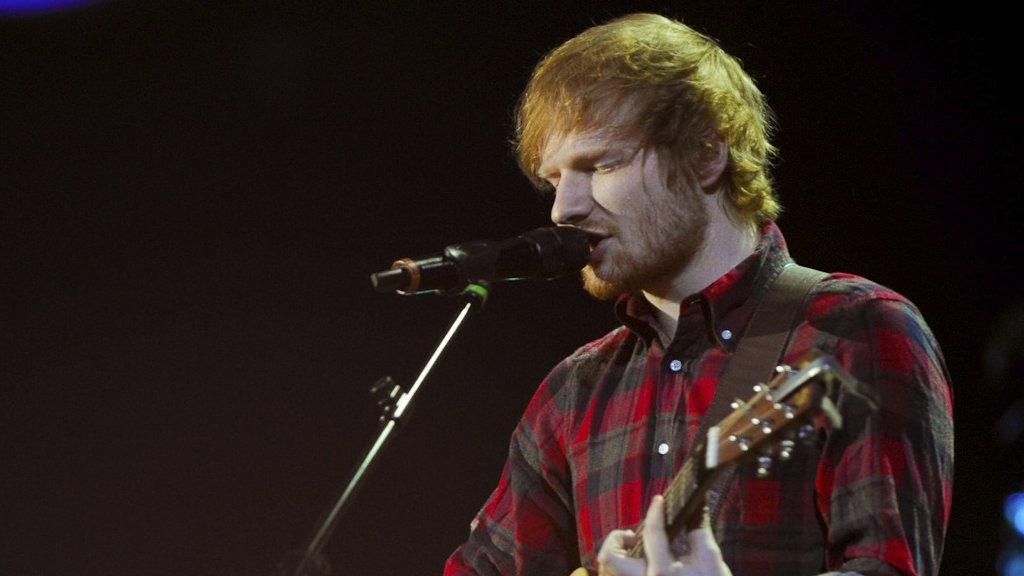
- Published12 December 2014
